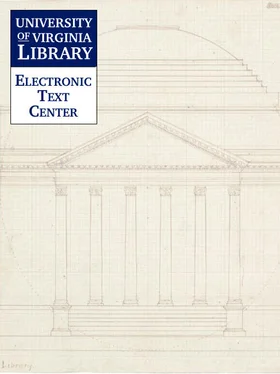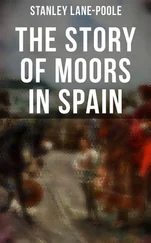Hendrik Loon - The Story of Mankind
Здесь есть возможность читать онлайн «Hendrik Loon - The Story of Mankind» весь текст электронной книги совершенно бесплатно (целиком полную версию без сокращений). В некоторых случаях можно слушать аудио, скачать через торрент в формате fb2 и присутствует краткое содержание. Год выпуска: 2000, Издательство: Electronic Text Center. University of Virginia Library., Жанр: Старинная литература, на английском языке. Описание произведения, (предисловие) а так же отзывы посетителей доступны на портале библиотеки ЛибКат.
- Название:The Story of Mankind
- Автор:
- Издательство:Electronic Text Center. University of Virginia Library.
- Жанр:
- Год:2000
- ISBN:нет данных
- Рейтинг книги:3 / 5. Голосов: 1
-
Избранное:Добавить в избранное
- Отзывы:
-
Ваша оценка:
- 60
- 1
- 2
- 3
- 4
- 5
The Story of Mankind: краткое содержание, описание и аннотация
Предлагаем к чтению аннотацию, описание, краткое содержание или предисловие (зависит от того, что написал сам автор книги «The Story of Mankind»). Если вы не нашли необходимую информацию о книге — напишите в комментариях, мы постараемся отыскать её.
The Story of Mankind — читать онлайн бесплатно полную книгу (весь текст) целиком
Ниже представлен текст книги, разбитый по страницам. Система сохранения места последней прочитанной страницы, позволяет с удобством читать онлайн бесплатно книгу «The Story of Mankind», без необходимости каждый раз заново искать на чём Вы остановились. Поставьте закладку, и сможете в любой момент перейти на страницу, на которой закончили чтение.
Интервал:
Закладка:
That was the end of the old Greek world, in which man had been allowed to think his own thoughts and dream his own dreams according to his desires. The somewhat vague rules of conduct of the philosophers had proved a poor compass by which to steer the ship of life after a deluge of savagery and ignorance had swept away the established order of things. There was need of something more positive and more definite. This the Church provided.
During an age when nothing was certain, the church stood like a rock and never receded from those principles which it held to be true and sacred. This steadfast courage gained the admiration of the multitudes and carried the church of Rome safely through the difficulties which destroyed the Roman state.
There was however, a certain element of luck in the final success of the Christian faith. After the disappearance of Theodoric's Roman-Gothic kingdom, in the fifth century, Italy was comparatively free from foreign invasion. The Lombards and Saxons and Slavs who succeeded the Goths were weak and backward tribes. Under those circumstances it was possible for the bishops of Rome to maintain the independence of their city. Soon the remnants of the empire, scattered throughout the peninsula, recognised the Dukes of Rome (or bishops) as their political and spiritual rulers.
The stage was set for the appearance of a strong man. He came in the year 590 and his name was Gregory. He belonged to the ruling classes of ancient Rome, and he had been ``prefect'' or mayor of the city. Then he had become a monk and a bishop and finally, and much against his will, (for he wanted to be a missionary and preach Christianity to the heathen of England,) he had been dragged to the Church of Saint Peter to be made Pope. He ruled only fourteen years but when he died the Christian world of western Europe had officially recognised the bishops of Rome, the Popes, as the head of the entire church.
This power, however, did not extend to the east. In Constantinople the Emperors continued the old custom which had recognised the successors of Augustus and Tiberius both as head of the government and as High Priest of the Established Religion. In the year 1453 the eastern Roman Empire was conquered by the Turks. Constantinople was taken, and Constantine Paleologue, the last Roman Emperor, was killed on the steps of the Church of the Holy Sophia.
A few years before, Zoë, the daughter of his brother Thomas, had married Ivan III of Russia. In this way did the grand-dukes of Moscow fall heir to the traditions of Constantinople. The double-eagle of old Byzantium (reminiscent of the days when Rome had been divided into an eastern and a western part) became the coat of arms of modern Russia. The Tsar who had been merely the first of the Russian nobles, assumed the aloofness and the dignity of a Roman emperor before whom all subjects, both high and low, were inconsiderable slaves.
The court was refashioned after the oriental pattern which the eastern Emperors had imported from Asia and from Egypt and which (so they flattered themselves) resembled the court of Alexander the Great. This strange inheritance which the dying Byzantine Empire bequeathed to an unsuspecting world continued to live with great vigour for six more centuries, amidst the vast plains of Russia. The last man to wear the crown with the double eagle of Constantinople, Tsar Nicholas, was murdered only the other day, so to speak. His body was thrown into a well. His son and his daughters were all killed. All his ancient rights and prerogatives were abolished, and the church was reduced to the position which it had held in Rome before the days of Constantine.
The eastern church however fared very differently, as we shall see in the next chapter when the whole Christian world is going to be threatened with destruction by the rival creed of an Arab camel-driver.
MOHAMMED
AHMED, THE CAMEL-DRIVER, WHO BECAME THE PROPHET OF THE ARABIAN DESERT AND WHOSE FOLLOWERS ALMOST CONQUERED THE ENTIRE KNOWN WORLD FOR THE GREATER GLORY OF ALLAH, THE ONLY TRUE GOD
SINCE the days of Carthage and Hannibal we have said nothing of the Semitic people. You will remember how they filled all the chapters devoted to the story of the Ancient World. The Babylonians, the Assyrians, the Phoenicians, the Jews, the Arameans, the Chaldeans, all of them Semites, had been the rulers of western Asia for thirty or forty centuries. They had been conquered by the Indo-European Persians who had come from the east and by the Indo-European Greeks who had come from the west. A hundred years after the death of Alexander the Great, Carthage, a colony of Semitic Phoenicians, had fought the Indo-European Romans for the mastery of the Mediterranean. Carthage had been defeated and destroyed and for eight hundred years the Romans had been masters of the world. In the seventh century, however, another Semitic tribe appeared upon the scene and challenged the power of the west. They were the Arabs, peaceful shepherds who had roamed through the desert since the beginning of time without showing any signs of imperial ambitions.
Then they listened to Mohammed, mounted their horses and in less than a century they had pushed to the heart of Europe and proclaimed the glories of Allah, ``the only God,'' and Mohammed, ``the prophet of the only God,'' to the frightened peasants of France.
The story of Ahmed, the son of Abdallah and Aminah (usually known as Mohammed, or ``he who will be praised,''; reads like a chapter in the ``Thousand and One Nights.'' He was a camel-driver, born in Mecca. He seems to have been an epileptic and he suffered from spells of unconsciousness when he dreamed strange dreams and heard the voice of the angel Gabriel, whose words were afterwards written down in a book called the Koran. His work as a caravan leader carried him all over Arabia and he was constantly falling in with Jewish merchants and with Christian traders, and he came to see that the worship of a single God was a very excellent thing. His own people, the Arabs, still revered queer stones and trunks of trees as their ancestors had done, tens of thousands of years before. In Mecca, their holy city, stood a little square building, the Kaaba, full of idols and strange odds and ends of Hoo-doo worship.
Mohammed decided to be the Moses of the Arab people. He could not well be a prophet and a camel-driver at the same time. So he made himself independent by marrying his employer, the rich widow Chadija. Then he told his neighbours in Mecca that he was the long-expected prophet sent by Allah to save the world. The neighbours laughed most heartily and when Mohammed continued to annoy them with his speeches they decided to kill him. They regarded him as a lunatic and a public bore who deserved no mercy. Mohammed heard of the plot and in the dark of night he fled to Medina together with Abu Bekr, his trusted pupil. This happened in the year 622. It is the most important date in Mohammedan history and is known as the Hegira--the year of the Great Flight.
In Medina, Mohammed, who was a stranger, found it easier to proclaim himself a prophet than in his home city, where every one had known him as a simple camel-driver. Soon he was surrounded by an increasing number of followers, or Moslems, who accepted the Islam, ``the submission to the will of God,'' which Mohammed praised as the highest of all virtues. For seven years he preached to the people of Medina. Then he believed himself strong enough to begin a campaign against his former neighbours who had dared to sneer at him and his Holy Mission in his old camel-driving days. At the head of an army of Medinese he marched across the desert. His followers took Mecca without great difficulty, and having slaughtered a number of the inhabitants, they found it quite easy to convince the others that Mohammed was really a great prophet.
Читать дальшеИнтервал:
Закладка:
Похожие книги на «The Story of Mankind»
Представляем Вашему вниманию похожие книги на «The Story of Mankind» списком для выбора. Мы отобрали схожую по названию и смыслу литературу в надежде предоставить читателям больше вариантов отыскать новые, интересные, ещё непрочитанные произведения.
Обсуждение, отзывы о книге «The Story of Mankind» и просто собственные мнения читателей. Оставьте ваши комментарии, напишите, что Вы думаете о произведении, его смысле или главных героях. Укажите что конкретно понравилось, а что нет, и почему Вы так считаете.












